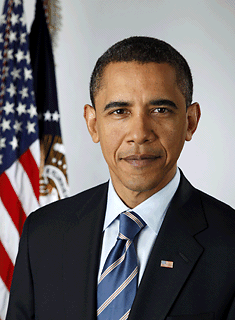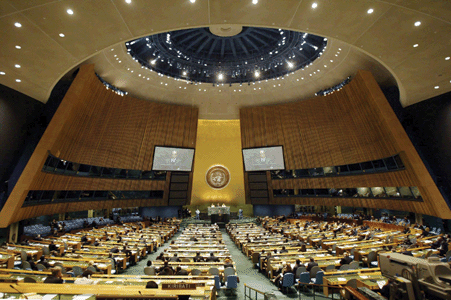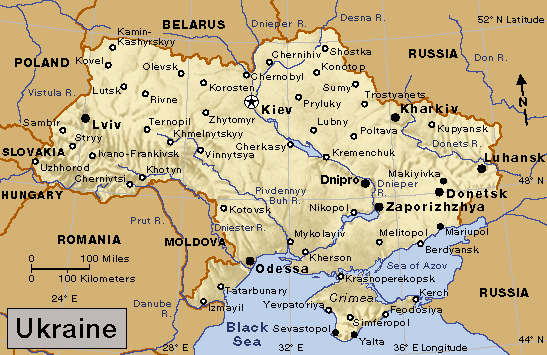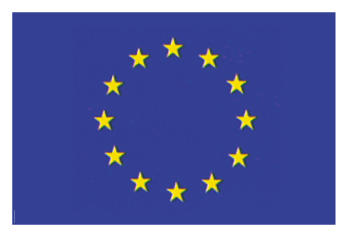A Dutch Report on a Tragedy
Wednesday, October 14th, 2015October 14, 2015
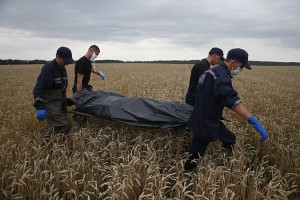
Members of the Ukrainian Emergency Ministry carry a body at the crash site of Malaysia Airlines Flight MH17 on July 19, 2014. Credit: © Maxim Zmeyev, Reuters/Landov
On July 17, 2014, a commercial airliner carrying 298 people on a flight from Amsterdam to Kuala Lumpur crashed in an area of Ukraine near the border with Russia. That area, Donetsk, was then (and is still) held by pro-Russian separatists. Everyone on Flight MH17 died. Among the dead were 193 Dutch, 43 Malaysians, and 27 Australians.
Yesterday, October 13, the Dutch Safety Board (DSB) released the results of its investigation into the crash. The report stated that the crash was caused by a warhead launched by a Russian-made Buk missile system from the eastern region of Ukraine, an area held by pro-Russian separatists. In order to analyze the crash, the DSB created a reconstruction of the plane built from the shattered pieces recovered from the field in Donetsk. After meticulous study, the DSB ruled out all other possible causes for the crash, and placed the blame solely on the surface-to-air missile.
Since early 2014, Ukraine’s Western-backed central government and the eastern separatists allied with Russia have been in armed conflict. The separatists had made repeated threats against Ukrainian planes flying through air space they considered to be theirs. In the week before MH17 was shot down, separatists had fired missiles on Ukrainian military jets. Almost immediately after MH17 was downed, social media accounts linked to the rebels claimed they had shot down a Ukrainian plane. Those posts were then quickly deleted.
Once it became clear that a commercial airliner had been shot down, and not a military plane, Russia and its allies in eastern Ukraine denied any involvement in the destruction of flight MH17. The Donetsk separatists said they had no Buk missile system despite eyewitness accounts placing one in the launch area pinpointed by the Dutch report. The DSB did not assign blame for who launched the missile, however. The Dutch prosecutor’s office will determine that in a separate criminal investigation.
The DSB report stated that the missile exploded near the plane’s cockpit, ripping away the nose of the plane. A quick loss of cabin pressure would have knocked the passengers unconscious in the brief seconds before the rest of the plane broke apart and fell to the earth.
Other Behind the headline articles
- Malaysian Airliner Shot Down Over Ukraine (July 18, 2014)
- Missiles Down More Military Jets Over Eastern Ukraine (July 24, 2014)
- EU Imposes New Sanction on Russia (July 29, 2015)
- The Downing of MH17, One Year Later (July 17, 2015)

